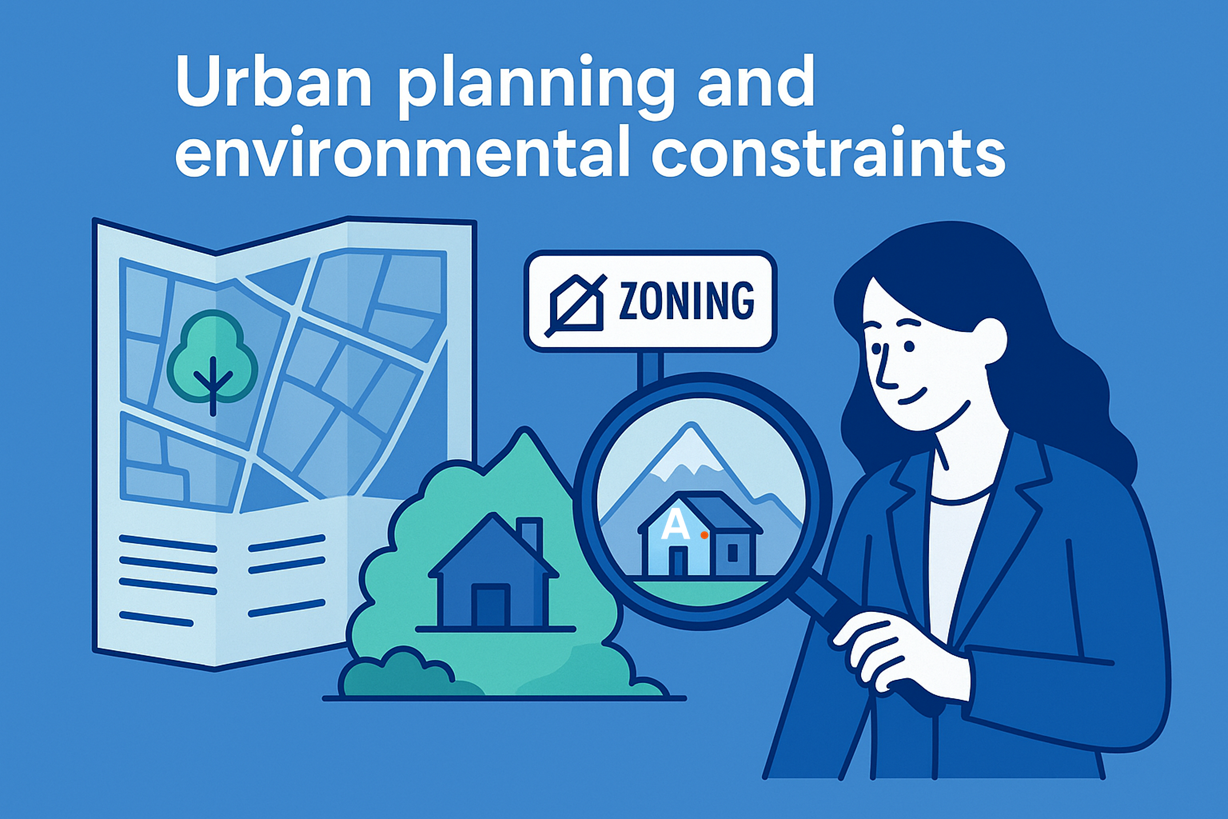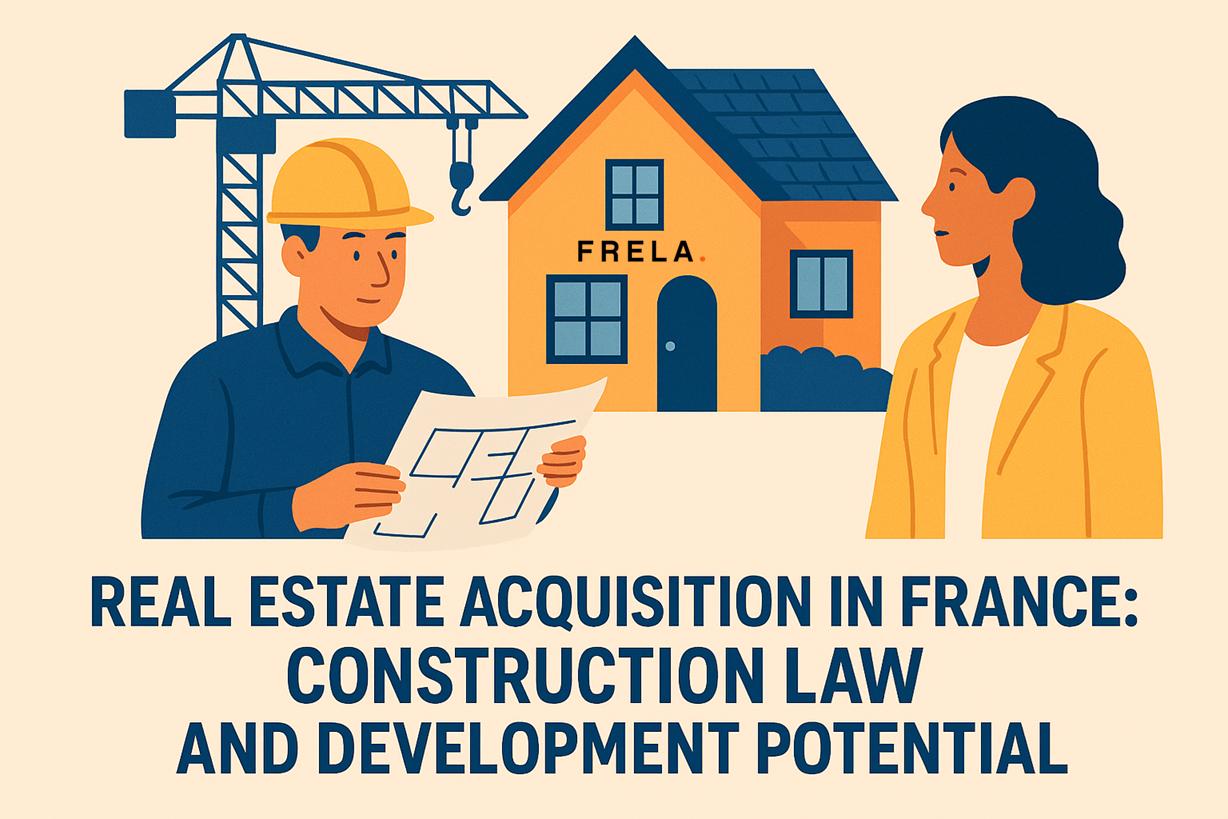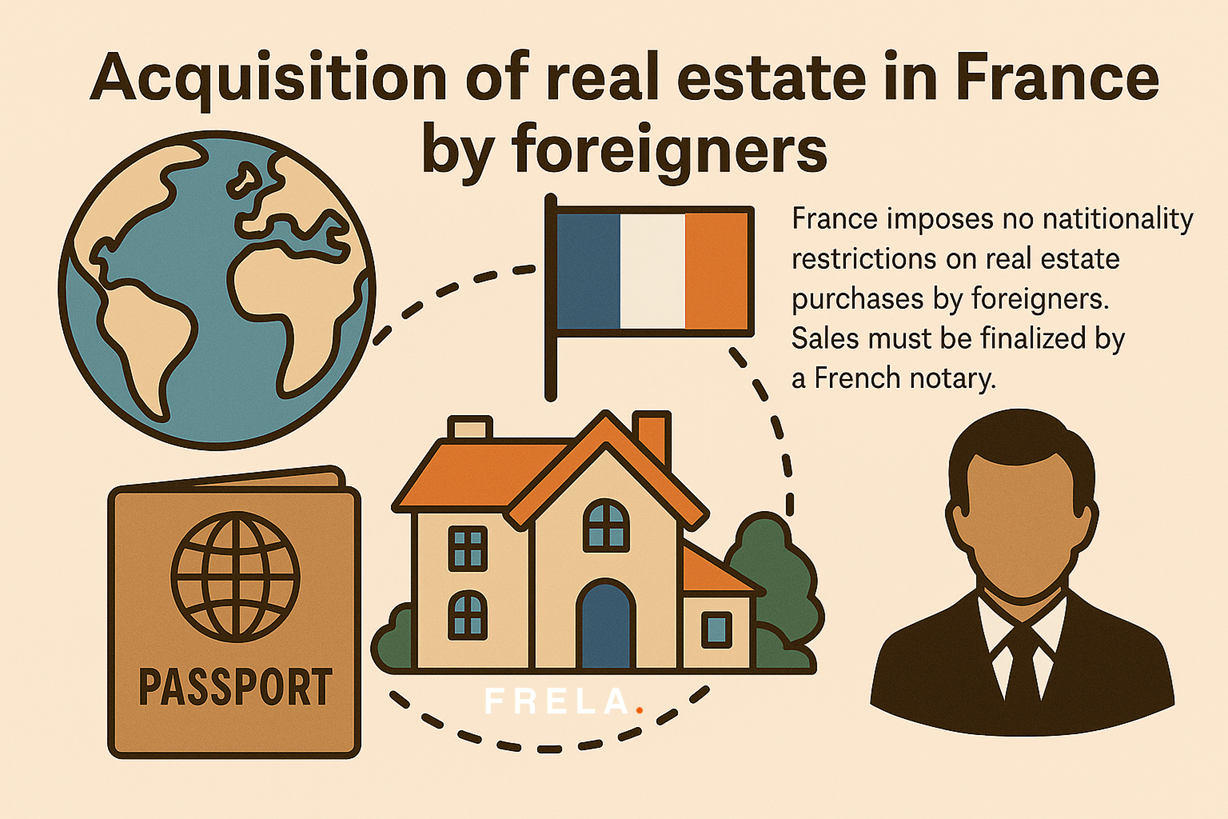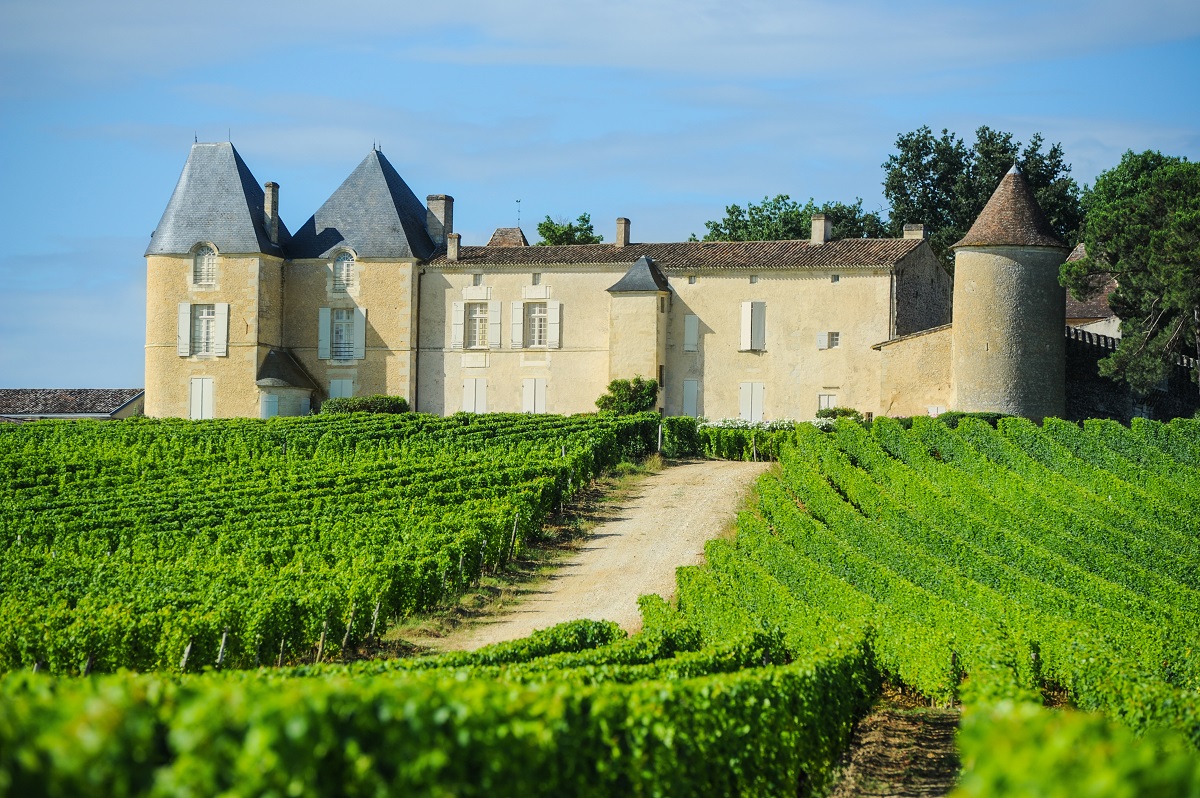Urban planning and environmental constraints
French urban planning law is often perceived as rigid and technical by foreigners, because it closely regulates what can be built or transformed. Each municipality has a Local Urban Plan (PLU), a document that zones the territory by defining for each zone the authorised uses and constructions (urban, agricultural, protected natural zones, etc.). Before buying a plot of land or a property to be renovated, it is strongly recommended to consult the PLU and to request an urban planning certificate from the town hall. Indeed, the urban planning certificate (CU) is an information document specifying the rules applicable to a given plot. The UC is not a building permit, but an official document that lists the urban planning rules, easements and urban planning taxes applicable to a plot of land. There are two types: the information CU (known as the “CUa”) which gives the general provisions (zoning, building rights-of-way, easements, risk prevention plans, existence of a right of pre-emption, etc.), and the operational CU (“CUb”) which also indicates whether a specific project would be feasible on the land. A foreign investor can apply for an urban planning certificate (free of charge) to avoid acquiring a property that is unbuildable or subject to strong restrictions without knowing it. For example, a Dutch buyer planning to buy a plot of land to build a villa on will find out via the urban planning certificate whether the land is buildable, within what limit (surface, height) and under what conditions (e.g. obligation to connect to the sewer, or presence of an archaeological area requiring prior authorisation). This preventive approach avoids post-acquisition disappointments.


Zoning and local restrictions.
The PLU may have surprises in store for the uninitiated: a plot of land in a natural (N) or agricultural (A) zone will in principle be unbuildable (with exceptions for agricultural use or public facilities). Similarly, some municipalities classify sectors as protected areas for landscape or ecological heritage, where the possibilities of building are almost nil. A foreigner attracted to an isolated farmhouse should be aware that extensive renovation or extension may be limited if the area is protected. The rules may impose architectural constraints (e.g. a slate roof is compulsory in a certain village, a ban on masonry fences in a rural area, etc.). Urban planning in France is highly regulated, and any project must scrupulously comply with it.
Building permit and refusal for risk.
Carrying out major works (new construction, significant extension, change of use of a building, etc.) requires prior planning permission: generally a building permit. The permit file is examined by the town hall, which verifies compliance with the PLU and the various standards (accessibility, connections, fire safety, etc.). This process can be long (legal investigation period of 2 to 3 months minimum, more in the event of an investigation or opinion of the architect of the Bâtiments de France). Above all, the municipality can refuse the permit if the project contravenes the rules or presents risks. A common reason for refusal is the situation in a flood zone: a plot of land located in a red flood risk zone is a legitimate reason for refusing a building permit. Case in point: a British investor had acquired a plot of land on the banks of a river in Provence to build a charming guest house. When the permit was filed, it was refused on the grounds of the risk of flooding: the risk prevention plan classified the area as a no-build zone after serious flooding in previous years. Even though he proposed improvements (building the house on stilts out of reach of the water), he had to give up, as the mayor was opposed to any new housing in this sensitive area. This case illustrates the primacy of public safety considerations over property rights: “Land located in a flood zone can be grounds for refusing a permit,” says a legal expert. Similarly, in mountain areas or areas of land movement, a project may be refused for natural risks.
Heritage and environmental protections.
France attaches great importance to the preservation of historical heritage and the environment, which translates into additional constraints. If the property is located within the perimeter of a historic monument or listed site, the architect of the Bâtiments de France will have to give his or her consent to any exterior change (façade colour, materials, height) – a process that may surprise a foreigner who discovers that he or she cannot freely modify his or her own listed house. Similarly, the Coastal Law prohibits practically all construction within 100 meters of the shore in coastal natural areas, and the Mountain Law limits dispersed urbanization at altitude. Some municipalities have subdivision regulations or green space protection regulations: for example, a remarkable tree on your plot may be protected, making it illegal to cut down. A foreign investor should therefore expect to have to deal with very meticulous local planning rules, whereas in his country of origin the regulations would be more flexible.
Illustration:
An American national buys a Provençal villa and wants to build a swimming pool and a pool-house on the land. However, the urban planning certificate reveals that the property is in a landscape protected area due to a classified panorama. The town hall imposed strict conditions: the swimming pool had to be modest in size, the pool house had to be refused because it created a new visible built area, and trees had to be planted in return. Disconcerted, our owner realizes that even on his private land, the freedom to build is conditioned by the collective landscape interest. Tip: it is wise to call on a local architect or an urban planning lawyer to study the development potential of a property before acquisition, especially for extension or major renovation projects.
In summary
French urban planning law may seem restrictive, but it guarantees a planned development of the territory and the protection of the general interest. A foreign investor must prepare for this by collecting as much information as possible beforehand: urban planning certificate, consultation of the PLU, meeting with the town hall’s urban planning services. This will allow you to know exactly what is possible or forbidden on the coveted property, and to adjust your project accordingly. It is better to find out before buying that a plot of land is not buildable, than after signing and paying the price… The real-life examples of permits refused because of zoning or heritage show that in France, you can only build in strict compliance with local rules.
About the Author :
Business lawyers, bilingual, specialized in acquisition law; Benoit Lafourcade is co-founder of Delcade lawyers & solicitors and founder of FRELA; registered as agents in personal and professional real estate transactions. Member of AAMTI (main association of French lawyers and agents).
FRELA : French Real Estate Lawyer Agency, specializing in acquisition law to secure real estate and business transactions in France.
Paris, 15 rue Saussier-Leroy, Paris
Bordeaux, 24 Rue du manège, 33000 Bordeaux
Lille, 40 Theater Square, 59800 Lille

This article is provided for general information only and may not reflect the most recent legal or tax developments. It does not constitute legal advice. Please contact us for personalised guidance before making any decision.




